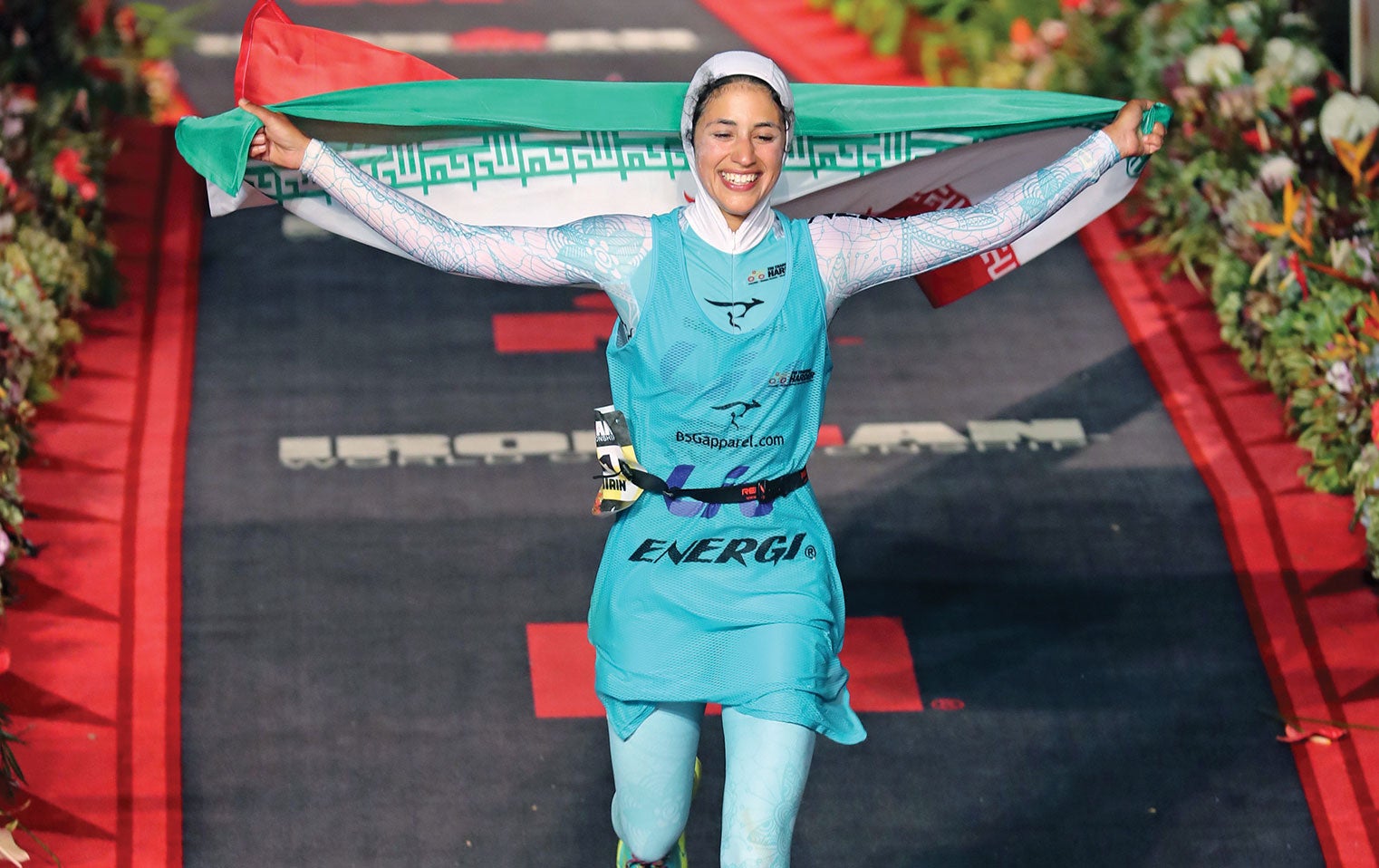Iran’s First Female Triathlete Is Breaking Down Barriers

Photo: Tony Svensson/IRONMAN
Shirin Gerami triathlete proves it’s courage—not clothing—that makes the triathlete.
It was long after midnight when Shirin Gerami sat in London’s Hyde Park pondering her fate. In just a few hours, the women set to compete in the 2013 ITU Age Group World Championship would be plunging into the park’s Serpentine River. She hoped with all her being she would be among them. Gerami, an Iranian, had spent the past several months petitioning her country’s sports ministry to allow her to compete in the race, and still there was no decision. Time was running out, and the fact that no Iranian woman had ever been allowed to formally represent Iran in a triathlon gave her little hope.
“Perhaps there is a limit to dreaming,” she recalls thinking the very moment the phone in her pocket began to buzz. It was the call she’d been anticipating. If Gerami pledged to respect traditional Islamic dress requirements—and if ITU officials agreed to set up a tent so she could change her clothes in full privacy after the swim—she could participate.
Just hours later, in full Islamic dress with her head, arms and legs covered, Gerami swam 750 meters, biked 40K and ran 10K. She was second to last, but the real measure of her accomplishment was the resounding message to Iranian women: “Clothing should not define who you are and what is and isn’t possible,” she says.
Post-race, Iran president Hassan Rouhani tweeted, “Shirin Gerami, 1st female triathlete to have participated in world championship wearing Iran’s colors. #GenderEquality.”
Encouraging words, no doubt, but ever since she decided to seek permission to represent Iran, her friends, family and government had all told her the same thing: “I shouldn’t even try,” says Gerami, who was introduced to the sport five years ago, when she joined a triathlon club during her final year of college in the UK. (Her prior athletic experience was “non-existent” but she was completely intrigued by the physical challenge.) In addition to having to navigate a stringent cultural code, there were significant logistical hurdles to overcome, such as finding training support, which initially came from British coaches Terence Watson and Philip Hatzis, and appropriate training attire.
“By choosing to represent Iran in triathlons, I chose to respect the country’s rules and regulations,” explains Gerami, 27. “I realized that for women who wish or need to participate in sports wearing fully covering clothes, appropriate sportswear barely exists.”
She set off on “a mission” to find clothing that wouldn’t hinder performance too much but would still be deemed acceptable by her country’s sports ministry, while also adhering to the rules of the sport’s various federations. A sportswear company in Tehran called Merooj Sports helped with her London race apparel, and she has since collaborated with Thread Design in the UK, District 3 in Montreal, and Ali’i Sports in California to design apparel that will work for her and her cultural code.
Most recently, Gerami teamed up with ROKA to create clothing for her latest challenge: the 2016 Ironman World Championship, where she competed as an Ironman ambassador (she finished in 13:11:07). “By racing Kona—one of the toughest sporting challenges in the world notorious for its hot and humid weather conditions—fully covered I hope to prove that clothes are not a barrier to sport participation,” she says.
To prep for Kona, Gerami spent a few weeks in Boulder, where she trained with coach and former pro Michael Lovato in an environment that she says “has helped me grow in a way that I could not have imagined.” For the past couple of years, she has also counted Ironman icon Paula Newby-Fraser as one of her mentors.
“It is my dream that one day, any girl, regardless of where she lives, her background or culture, can also have access to appropriate training environments, knowledge and inspiring role models,” Gerami says.
No doubt, future generations of female Iranian triathletes will be able to walk through a door that Gerami single-handedly wedged open.